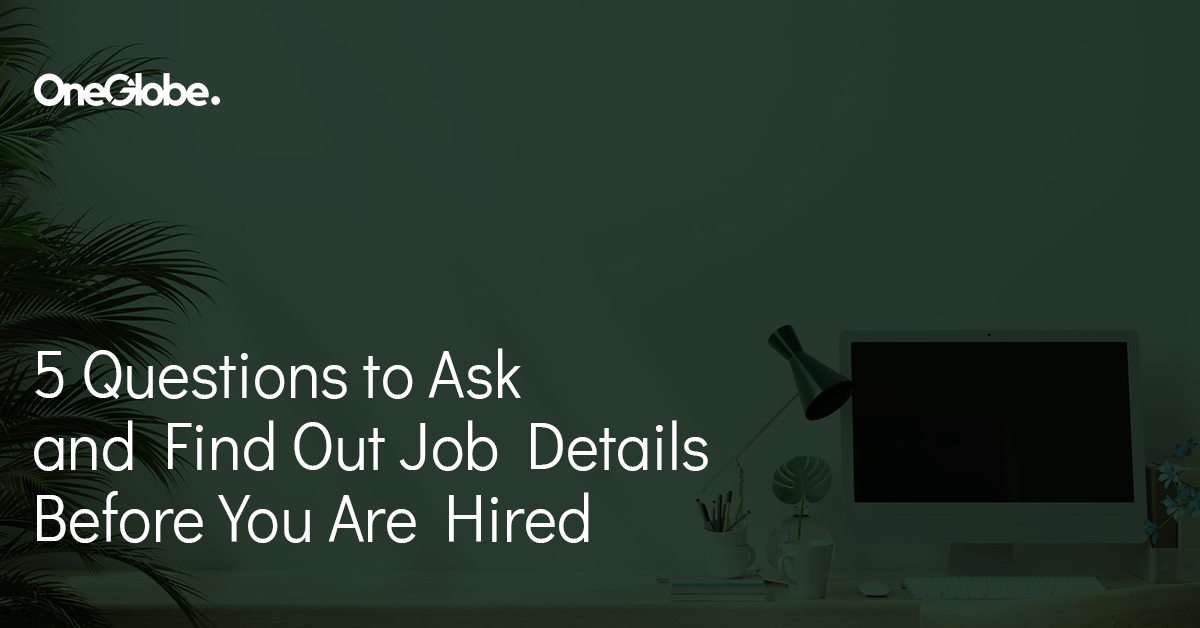
As someone who’s looking for a new job, you’ll want to find out as many job details as possible before you sign your new contract. This is a good way to handle job interviews, as you’ll want to learn more about the employer and their work culture before committing to anything.
According to recent reports, 23% of employers and recruiters want to improve their time-to-hire as much as possible, however, almost 50% of candidates turn down job offers due to a poor recruitment experience. To drive the point home even further, 31% of newly-hired professionals leave their jobs within six months due to job misconceptions or differences of opinion.
If the interviewer is showing signs of red flags during the job interview, you’ll have a difficult time coming to terms with your actual job details once you’re hired. With that said, let’s take a look at how you can use Jobs OneGlobe to apply for new jobs as well as how you can discuss job details with your potential employer as professionally as possible.
Ask for Job Details during Job Interviews
Before you go into the details about your potential job, you need to understand why asking these questions is so important. You don’t want to leave anything to luck or chance when it comes to looking for a new job – the more you know about your potential job, the better off you’ll be.
According to published findings, 83% of job applicants stated that being provided with a clear hiring timeline during the selection process would greatly improve their experience, for example. With average job listings receiving up to 250 CVs, employers also have the difficult task of choosing the right person to fill their ranks.
So, asking for additional job details can be seen as a positive, a sign that you’re interested in being hired and would like to hear more about the job you’ll do. Here are some more good reasons why asking for additional job details is a good idea:
- The original job listing is too vague and imprecise
- The employment benefits are unclear or missing
- You don’t know which company the recruiter is representing
- Salary details are confusing or missing entirely
- The required qualifications are confusing for said job title
Let’s discuss the best questions to ask your interviewer and find out more job details about the position you applied for. With this information in hand, you’ll have a much easier time deciding whether the job is a good fit for you.
Write your New CV
1. “How do you imagine an ideal candidate for this job?”
Understanding what the employer or recruiter is looking for in a candidate will give you a good idea of whether or not you’re a good choice for the job. You should ask the interviewer about the skills, character traits, and habits of an ideal job candidate.
How exactly should the person behave and what should their workflow look like? This is an important point to cover since you may not like the employer’s business culture which can lead to you quitting.

2. “What is the most stressful part of this job?”
If you’re being interviewed by a representative of the company you’ve applied for, you can ask them anything you’d like to know about the job itself. Being interviewed by your future project manager or team leader is a great way for you to find out the small job details which can make or break your willingness to proceed further.
Ask your interviewer about the stress concerning the job you applied for and what you should look forward to. If you’re an introvert or someone who doesn’t like to be pressured, it’s very important to address this upfront to clear the air.
“Starting a new job is always scary, or at least for me, it’s always scary. It’s like the first day of school.” — Sean Maher
3. “Is there room for development and/or promotion?”
Depending on the industry to which the job belongs, there might be an opportunity for you to get promoted after a certain period. Likewise, professional development opportunities are an important part of the value of being employed.
So, ask your potential employer about what professional development perks you can look forward to. You can explain that you don’t want to stagnate as a professional and that you’re looking for learning opportunities. You can also express your desire or goals to become a senior in your profession or to one day lead your team – would that be a possibility in their company?
4. “Could you tell me more about the team?”
Speaking of the team you’ll work with, you’ll want to ask a few things about it during the job interview. For example, if you’re applying for a position of a senior programmer in an IT company, who will you work with on a moment-to-moment basis? The same applies to jobs in any industry since you’ll need to collaborate with colleagues to achieve certain goals, deliver projects, and service clients or customers.
Depending on what the interviewer tells you, you’ll get a better image of what your role in the team will be, as well as how many responsibilities you’ll have on your plate. This is one of those job details you certainly want to learn more about ahead of time.
5. “Is remote or hybrid work an option?”
Many professions which rely on digital technology have shifted toward remote and hybrid workflows. If your employer hasn’t listed the job as “on-site”, you should probe the option of working remotely or in a hybrid system.
This can be very helpful if you’re applying for jobs abroad and would rather stay at home instead of moving to another country. However, you’ll have very little negotiation room if the employer insists on you working on site instead. But, by learning about this on time, you’ll have all the information and job details you need to make the final decision of whether you should accept the job or not.
“It’s all about quality of life and finding a happy balance between work and friends and family.” — Philip Green
Landing Great Jobs with Jobs OneGlobe
Finding out the right job details about a potential job vacancy is also a matter of where you’re looking for jobs. According to online data, 39% of employers and recruiters use job boards like Jobs OneGlobe to find the best candidates. By creating your account at Jobs OneGlobe and writing a detailed new CV by using its professional CV builder, you’ll start to stand out from other job candidates.
Apply for the job listings you find at Jobs OneGlobe and Jobs OneGlobe will also do its best to promote your CV to its global partners who are looking for talent to hire. Don’t make professional compromises and learn about as many job details as you can before you’re hired. That way, you’ll begin the next leg of your professional journey on the right note and have no regrets about the job you’ve accepted.




Share
Facebook
Twitter
LinkedIn
Telegram
Tumblr
WhatsApp
VK
Mail